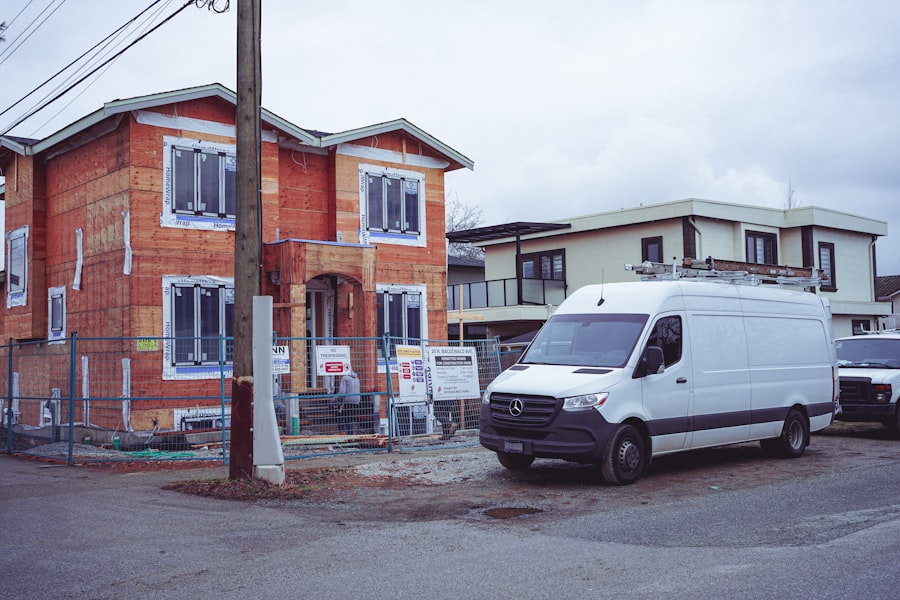Purchasing a mobile home with land offers a unique blend of affordability and flexibility that traditional homeownership often lacks. One of the most significant advantages is the cost savings associated with mobile homes. Generally, mobile homes are less expensive than site-built homes, allowing buyers to invest in a property that includes land.
This combination can lead to lower monthly payments and reduced financial strain, making it an attractive option for first-time homebuyers or those looking to downsize. Additionally, owning land provides the opportunity for future appreciation, as real estate values tend to rise over time. This can be particularly beneficial in areas experiencing growth or development.
Another compelling benefit of buying a mobile home with land is the freedom it affords homeowners. Unlike traditional neighborhoods with strict homeowners’ association (HOA) rules, many mobile home properties allow for greater autonomy in how you use your land. Homeowners can often engage in gardening, landscaping, or even small-scale farming without the constraints typically imposed by HOAs.
This flexibility can enhance the quality of life for individuals and families who value outdoor space and personal expression. Furthermore, owning land can provide a sense of stability and permanence that renting or living in a mobile home park may not offer.
Key Takeaways
- Buying a mobile home with land offers stability and potential investment benefits.
- Understanding costs and financing options is crucial for budgeting and securing loans.
- Location choice impacts lifestyle, convenience, and property value.
- Inspections and due diligence help avoid costly surprises and ensure quality.
- Customizing your mobile home allows it to meet your personal needs and preferences.
Understanding the Costs and Financing Options
When considering the purchase of a mobile home with land, it is crucial to understand the various costs involved. The initial purchase price is just one aspect; potential buyers should also factor in property taxes, insurance, maintenance, and utilities. Property taxes can vary significantly based on location and local regulations, so it’s essential to research these costs thoroughly before making a decision.
Additionally, insurance for mobile homes can differ from traditional homeowners’ insurance, often requiring specialized coverage that accounts for the unique risks associated with mobile living. Financing options for mobile homes with land can be more complex than traditional mortgages. Many lenders offer specific loans designed for mobile homes, which may include chattel loans or FHA loans that cover both the home and the land.
Chattel loans are typically used when the mobile home is not permanently affixed to the land, while FHA loans can provide favorable terms for those purchasing both the home and the property it sits on. Understanding these financing options is critical for potential buyers, as they can significantly impact monthly payments and overall affordability. Consulting with a financial advisor or mortgage specialist who understands mobile home financing can help navigate these complexities.
Finding the Perfect Location for Your Mobile Home

The location of your mobile home is paramount to your overall satisfaction and quality of life. When searching for the ideal spot, consider factors such as proximity to work, schools, healthcare facilities, and recreational areas. A location that offers easy access to essential services can enhance your daily routine and contribute to a more enjoyable living experience.
Additionally, consider the community atmosphere; some individuals may prefer rural settings with expansive views and tranquility, while others might seek out urban environments with vibrant social scenes. Another critical aspect of location is the zoning regulations that govern where mobile homes can be placed. Different areas have varying rules regarding mobile home placement, which can affect your options significantly.
Researching local zoning laws is essential to ensure that your desired location is suitable for a mobile home. Furthermore, consider the potential for future development in the area; purchasing land in an up-and-coming neighborhood may yield significant returns on investment as property values rise over time.
The Importance of Inspections and Due Diligence
| Metric | Description | Importance Level | Typical Outcome |
|---|---|---|---|
| Inspection Coverage | Percentage of property or asset thoroughly inspected | High | Identifies hidden defects and potential risks |
| Due Diligence Timeframe | Average duration allocated for due diligence process | Medium | Ensures comprehensive review without unnecessary delays |
| Risk Identification Rate | Number of risks identified per inspection or review | High | Helps in making informed decisions and risk mitigation |
| Cost Savings from Inspections | Percentage reduction in unexpected repair or legal costs | High | Prevents costly surprises post-purchase or investment |
| Compliance Verification | Rate of compliance with regulatory and safety standards | High | Avoids legal penalties and ensures operational safety |
| Stakeholder Confidence | Level of confidence among investors and partners | Medium | Improves trust and facilitates smoother transactions |
| Documentation Accuracy | Percentage of accurate and complete documentation reviewed | High | Reduces errors and supports transparent decision-making |
Before finalizing the purchase of a mobile home with land, conducting thorough inspections and due diligence is vital to avoid costly surprises down the line. A professional inspection can uncover hidden issues within the mobile home itself, such as structural problems, plumbing leaks, or electrical issues that may not be immediately apparent. These inspections are crucial because they provide an opportunity to negotiate repairs or price adjustments before closing the deal.
In addition to inspecting the home, buyers should also conduct due diligence on the land itself. This includes checking for any environmental concerns, such as soil contamination or flood risks, which could impact your investment. Understanding the land’s history and any potential restrictions on its use is equally important.
Engaging with local authorities or real estate professionals can provide valuable insights into any existing easements or encroachments that may affect your property rights.
Customizing Your Mobile Home to Suit Your Needs
One of the most appealing aspects of owning a mobile home is the ability to customize it according to personal preferences and lifestyle needs. Unlike traditional homes that may require extensive renovations to alter their layout or design, mobile homes often allow for more straightforward modifications. Homeowners can choose from various options such as upgrading appliances, changing flooring, or even adding extensions to create additional living space.
Customization extends beyond aesthetics; it also encompasses functionality. For instance, individuals with specific needs may want to modify their homes for accessibility purposes or create dedicated spaces for hobbies or work-from-home setups. The flexibility inherent in mobile home design means that homeowners can tailor their living environment to better suit their lifestyles, enhancing comfort and satisfaction in their daily lives.
Navigating Zoning and Land Use Regulations

Understanding zoning and land use regulations is crucial when purchasing a mobile home with land. These regulations dictate how properties can be used and what types of structures are permissible in specific areas. Zoning laws can vary widely from one municipality to another; some areas may have strict regulations regarding mobile homes, while others may be more lenient.
Familiarizing yourself with these laws before making a purchase can save you from potential legal issues or costly modifications later on. In addition to zoning laws, buyers should also be aware of any land use regulations that may apply to their property. These regulations can include restrictions on building additional structures, maintaining certain landscaping standards, or even limitations on livestock or agricultural activities.
Engaging with local planning departments or zoning boards can provide clarity on what is permissible on your property and help you make informed decisions about your investment.
Tips for Selling Your Current Property and Moving to a Mobile Home
Transitioning from a traditional home to a mobile home involves careful planning and execution, especially when it comes to selling your current property. One effective strategy is to enhance your home’s curb appeal through minor renovations or landscaping improvements that make it more attractive to potential buyers. Additionally, staging your home can create an inviting atmosphere during showings, helping prospective buyers envision themselves living there.
Timing is also critical when selling your current property while preparing for a move to a mobile home. It’s essential to coordinate the sale of your existing home with the purchase of your new one to avoid gaps in housing or financial strain from carrying two mortgages simultaneously. Working with a real estate agent who understands both markets can facilitate this process and ensure that you maximize your sale price while securing your new mobile home efficiently.
Working with Real Estate Agents and Mobile Home Specialists
Engaging with real estate agents who specialize in mobile homes can significantly streamline the buying process and provide valuable insights into market trends and pricing strategies. These professionals possess specialized knowledge about mobile home financing options, zoning regulations, and local market conditions that can benefit buyers significantly. They can also assist in identifying properties that meet specific criteria while negotiating favorable terms on behalf of their clients.
Moreover, working with agents who have experience in both traditional real estate and mobile homes allows for a comprehensive understanding of how these two markets intersect. This expertise can be particularly beneficial when selling a traditional property while transitioning to a mobile home, as these agents can provide guidance on pricing strategies and marketing techniques tailored to both types of properties. By leveraging their knowledge and resources, buyers and sellers alike can navigate the complexities of real estate transactions more effectively.



